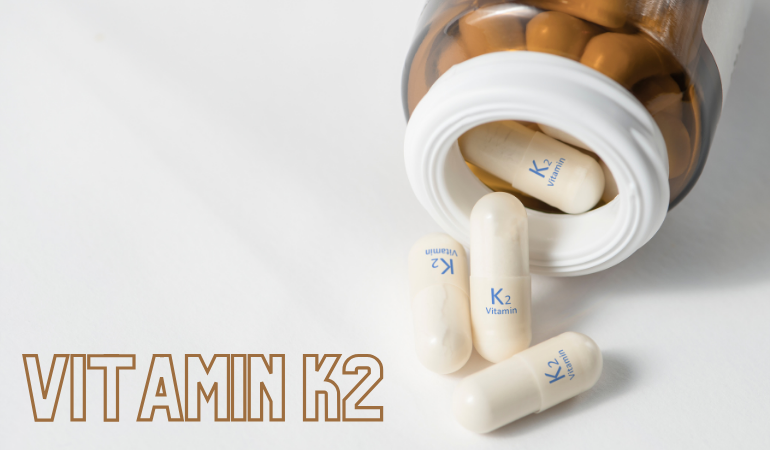VITAMIN K2
Vitamin K2, also known as menaquinone, is a fat-soluble vitamin that plays a crucial role in various physiological functions in the body. The primary function of vitamin K2 is to regulate the body’s calcium metabolism. There are several forms of vitamin K2, with the two main types being MK-4 and MK-7.
- Bone Health: Vitamin K2 is essential for bone health as it helps regulate the balance of calcium in the bones and arteries. It works in conjunction with vitamin D and other minerals to ensure that calcium is deposited in the bones and teeth rather than in the arteries and soft tissues.
- Cardiovascular Health: Vitamin K2 is believed to contribute to cardiovascular health by helping to prevent the buildup of calcium in the arteries, reducing the risk of arterial calcification and atherosclerosis. This may, in turn, lower the risk of cardiovascular diseases.
- Blood Clotting: Like vitamin K1, vitamin K2 plays a role in blood clotting. It is involved in the synthesis of certain proteins necessary for blood coagulation, helping prevent excessive bleeding.
- Cellular Functions: Vitamin K2 has been implicated in various cellular processes, including cell growth, apoptosis (programmed cell death), and the regulation of inflammatory pathways.
- Dental Health: Some research suggests that vitamin K2 may contribute to dental health by promoting the mineralization of teeth and supporting oral health.
Food sources of vitamin K2 include fermented foods like natto, cheese, and certain animal products. Additionally, the body can convert vitamin K1 (found in green leafy vegetables) into vitamin K2.
It’s important to note that while vitamin K2 is essential for health, excessive supplementation may not be necessary for everyone, and it’s advisable to obtain nutrients through a balanced diet whenever possible. If you have specific health concerns or conditions, it’s recommended to consult with a healthcare professional before starting any new supplement regimen.


